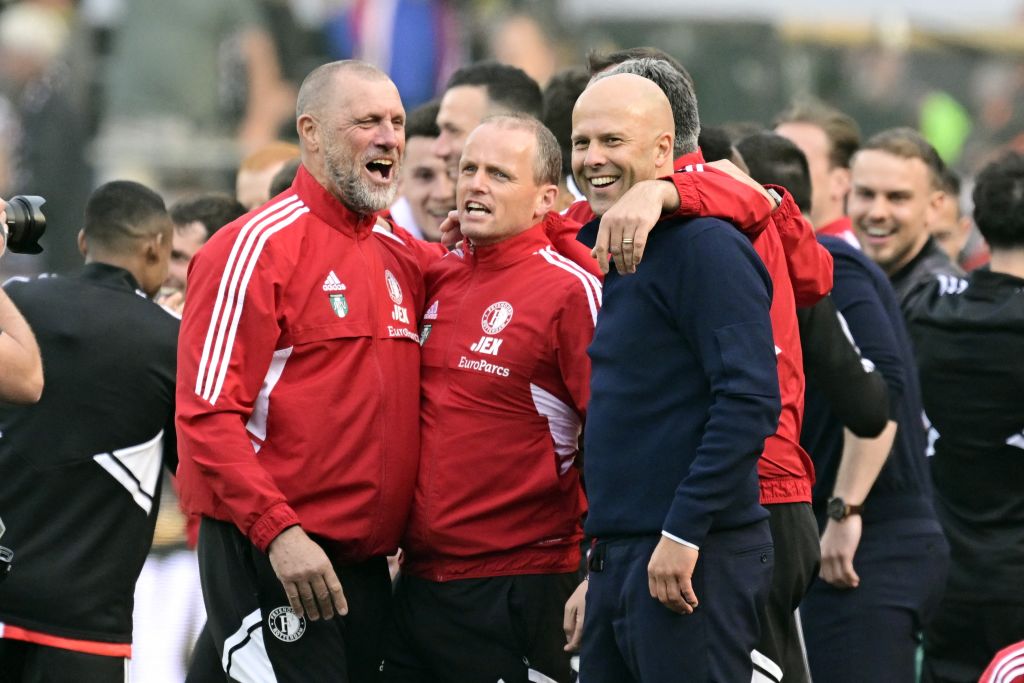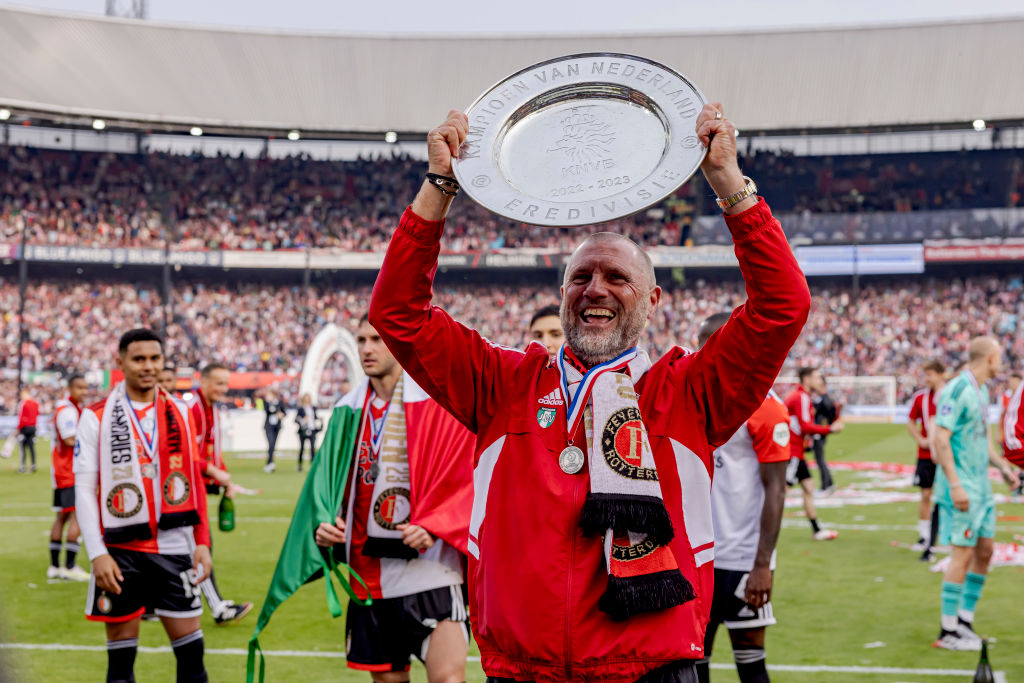
could already have an issue if they manage to persuade Arne Slot to leave Feyenoord this summer, with the Dutchman’s assistant not keen on joining him in the .
The north Londoners are stepping up their search for a new manager to succeed – who was axed nearly two months ago – and have identified Slot as a leading candidate.
Any move has had to wait until the conclusion of the Eredivisie title race, with Feyenoord finally crowned champions on Sunday with two games to spare.
Spurs could struggle to prise Slot away from Rotterdam, with the 44-year-old reportedly offered a sizeable £3m-a-year new deal to remain at the club – while they will also be competing in the .
Now, in a further blow, it appears Slot’s larger-than-life assistant manager John de Wolf has little desire to leave Feyenoord even if the head coach accepts an offer elsewhere.
Asked about the speculation linking the Feyenoord boss with a move to Spurs, De Wolf told show: ‘We haven’t talked about that at all. I once said [to Slot] in the early stages, don’t listen to any other club in the Netherlands anyway.’
Probed further on whether he would go to Tottenham if Slot asked him, De Wolf replied: ‘I would wish him good luck [at Spurs].

‘But this is my club, this is where I belong, this is my home. I still get goosebumps every day when I drive over the bridge [to training].’
De Wolf was born and raised in Rotterdam, initially playing for Sparta and then Feyenoord between 1989 and 1994, though did spend a brief time in England with Wolves before injury curtailed his career and forced him to return to the lower tiers of Dutch football.
Slot might have been hoping to lean on De Wolf’s experiences within the English game should he take the Tottenham job, but it appears his assistant is determined to remain in the Netherlands.
Reflecting on his time in England in an interview with in 2019, De Wolf said: ‘It was a different league to adapt to. I was a big, strong player in Holland but when I came to Wolves, I couldn’t believe how hard they trained! So physical.
‘You can either do nothing — or you must do more. So I did extra work at the gym three times a week.
‘The defending was different. In Holland, if an opposition left-winger has the ball against the right-back, as a central defender you support him. In England, they said stay in front of the box, stay there. It was different, normally you want to help him. Long balls too. But it was fantastic.’
, .
, and .
























